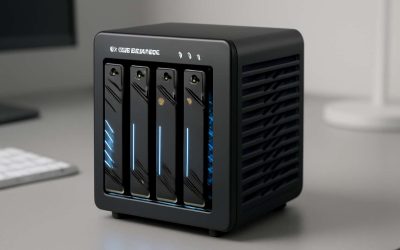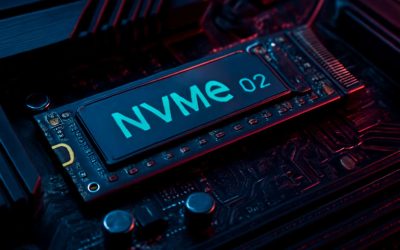
A solid state drive is an electronic device that stores and retrieves data using semiconductors. The main components are a memory chip and a flash controller. These chips are designed to be interoperable with other devices. This means that a single SSD can be used in a variety of computers and devices. However, there are limitations.
One major advantage of SSDs over hard drives is that there are no moving parts. These drives are also shock resistant. Another reason to consider switching from an HDD to a solid state drive is the fact that HDDs tend to get noisy. Although not all SSDs are silent, some have a low level of noise.
Solid state drives are also more reliable than HDDs. While there is a higher chance of errors, the rate of uncorrectable errors is lower. Also, most of these drives have a small number of bad blocks. It is estimated that a two to seven percent of the drives in use will develop at least one bad block. If an SSD has a high number of bad blocks, it may be prone to failure.
When a solid state drive is first installed, it requires a few steps. First, the device must be connected to a PC. After that, it should be fitted into a slot. To prevent damage to the circuitry, it should be placed in an insulated case. Finally, the power supply should be turned off. Depending on the brand of SSD, the instructions for installation will vary.
An important difference between a HDD and a solid state drive is that a hard drive has a rotating platter that is susceptible to vibration and breakage. In addition, there are some hazards to the electrical systems of a hard disk. For example, an electromagnetic pulse can damage the system.
Unlike the magnetic heads found on a hard disk, the heads of a solid state drive are not sensitive to vibration. Hence, the storage medium has a lower failure rate. Moreover, there is a limited lifespan of the device. So, a company that buys both types of storage should conduct a detailed cost-benefit analysis.
Solid state drives are usually used in high-end gaming PCs and laptops. The newest game consoles use SSDs in place of hard disks. They offer higher performance and faster load times. Additionally, there are several other applications for these types of devices. Some of them include enterprise use cases, such as database servers and ecommerce applications.
Compared to hard drives, solid state drives are more expensive. However, the costs are expected to decline. As a result, they can be an attractive alternative to HDDs for consumers.
However, if you are looking for a storage solution for a large file size, it is worth considering purchasing a solid state drive. There are many benefits to this type of storage, and it is a good idea to use a drive if you are running a large number of bulky programs.



0 Comments